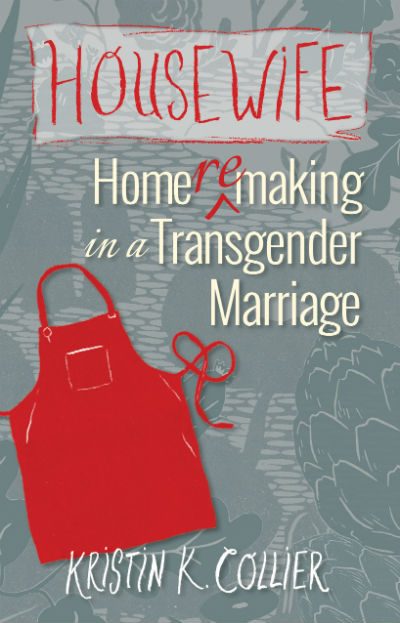Changing the world for the better, one compassionate story at a time.
Eleven years ago, I was in hiding. I was married to the man of my dreams, and we had an infant and toddler. I cooked, cleaned, and cared for our children daily, knowing that my concept of our family was probably a sham and could collapse at any moment. My husband had admitted to me that he felt like a woman inside.
We both hid. It took years of counseling for Fred to realize she was Seda, and in those years, we didn’t let people know what we were going through, because the risk was too great. I’d told one close friend, and she said we had to pray to heal my husband. But I wasn’t sure my husband was sick! While I supported my partner as she explored her feminine side, I desperately needed my friends, family, and community, and I did not trust that they would stand by us if I told them what was happening.
Fortunately, I discovered Nonviolent Communication and how to be honest with myself. In those first years of intensive study to become a lay teacher, I came clean about my own true feelings and needs, and the process opened me to curiosity about my partner’s. Over the course of the next few years while I struggled to see Seda for who she believed herself to be, mentally removing the beard and mustache, I got a little more comfortable with confusion. Seda and I did not know what would happen next, nor how we would feel about each other. We said as much every day, simply to come to terms with the truth without expectation of outcome.
This cultivation of presence served us in relationship to each other, and finally in relationship to the world. We came out to our family, and then to our friends. Seda made the transition to living full-time female at work and in community. I was able to exhale, now knowing the score: a few friends had not followed us, but most had remained steadfast. Seda still had a job, and our kids continued on in the same playgroup.
We are lucky that we live in a liberal town in the Pacific Northwest, but we have something else going for us, too. We have hard-won radical honesty, the kind that comes from the inside out. Because we took time to explore and get empathy for our feelings and needs, owning them in “I-language,” we did not shame or blame one another while Seda transitioned. And though it took years of wandering in the wilderness alone before we felt confident enough to bring our truth out into the open, the end result was much stronger because we had laid this foundation and deepened our respect for one other first. The world accepted us because we accepted us. When we came out to the community, we were not fragile with our new-found truths; we were sure of them.
The reality is that our world is not always a safe place for folks of less common gender identities and sexual orientations. I believe it will become safer as others’ stories join ours, chronicling the lives of couples as they break out of the box and learn to be families in new and creative ways.
When Seda and I committed to getting comfortable with our confusion, we came to acceptance in ways that were necessarily hard. I felt my heart had been broken open. As I learned to embrace Seda on her path, I fostered equal acceptance for the way our world is in the moment – the beauties and limitations of our culture, the places where it lies and bites its tail like a snake in madness. I learned to love this crazy world that may one day harm Seda, me, or our family, just because of who we are. I love our world with a heart broken open, on a good day, a love that knows no enemies. I then turn my attention to the places where our world loves us back.
Our family’s story is indeed unique, honest, and loving. Seda has a wing of her own, and I live with my romantic partner in the other side of the house with our teenage boys. We share meals, play soccer, and watch movies together. We are a family, and Seda and I are close in ways we never could have been as romantic partners.
I offer our story fearlessly because I understand that our culture is what it is now for a variety of reasons. We are doing the best we can, as a whole, and I believe that connection is what will save us. We are waking up and changing this world for the better, by reading one compassionate story at a time.
Kristin K. Collier is an educator and writer from Eugene, OR. She has been teaching Compassionate Communication since 2004. Collier and her spouse were featured in NPR's program, Snap Judgment, in their Valentine's 2012 edition.
Collier’s memoir, Housewife: Home-remaking in a Transgender Marriage will soon be available in print on Amazon and at all major bookstores.
For more information, please visit www.kristinkcollier.com and connect on Facebook or Twitter
